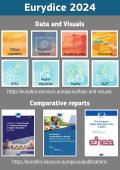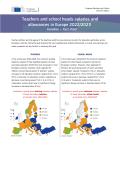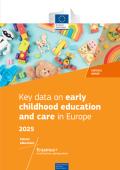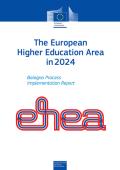Recommended Annual Instruction Time in Full-time Compulsory Education in Europe – 2016/17
Comparative analysis: BG DE ES FR LT MK PT RO SKSR SLA TR
The Council of the European Union has set the goal of reducing low achievement in reading, mathematics and science among 15-year-olds to less than 15 % by 2020. But how are European countries going to achieve this? Effective learning depends on many factors, but one key element in the learning process of students is the instruction time available to them. How can they best organize limited time between different subjects, ensuring that all students have the opportunity to develop their learning potential in a range of different areas?
This report examines the recommended minimum instruction time in full-time compulsory general education in 2016/17 in 42 European education systems. It includes national diagrams illustrating the data by country and by subject. The comparative overview examines the policy changes that have taken place over the last year regarding the recommended annual instruction time and its distribution across subjects. It pays special attention to several subjects which are currently of particular interest at European level: Reading, writing and literature, maths, natural sciences, other languages and physical education and health. For maths and natural sciences it compares the minimum recommended by education authorities with the instruction time reported by teachers and students in TIMSS and PISA surveys.
The Eurydice network has been collecting data on instruction time for more than two decades and annually updated data on instruction time has been available on the Eurydice website since 2010.





